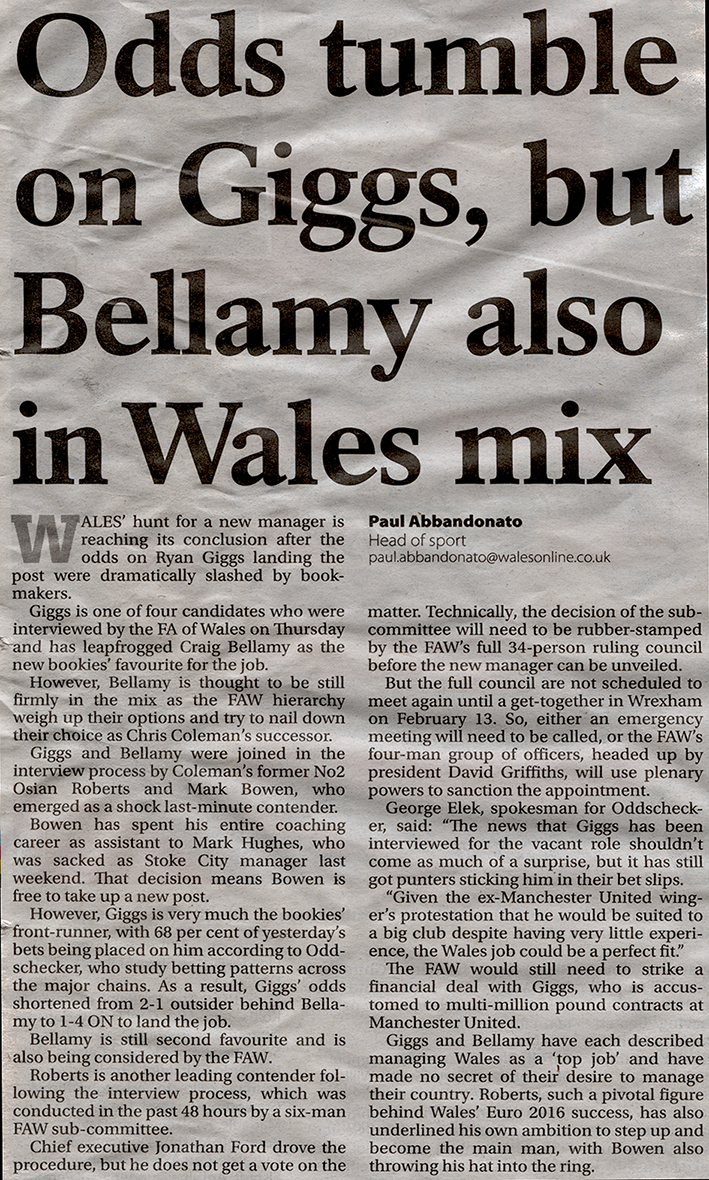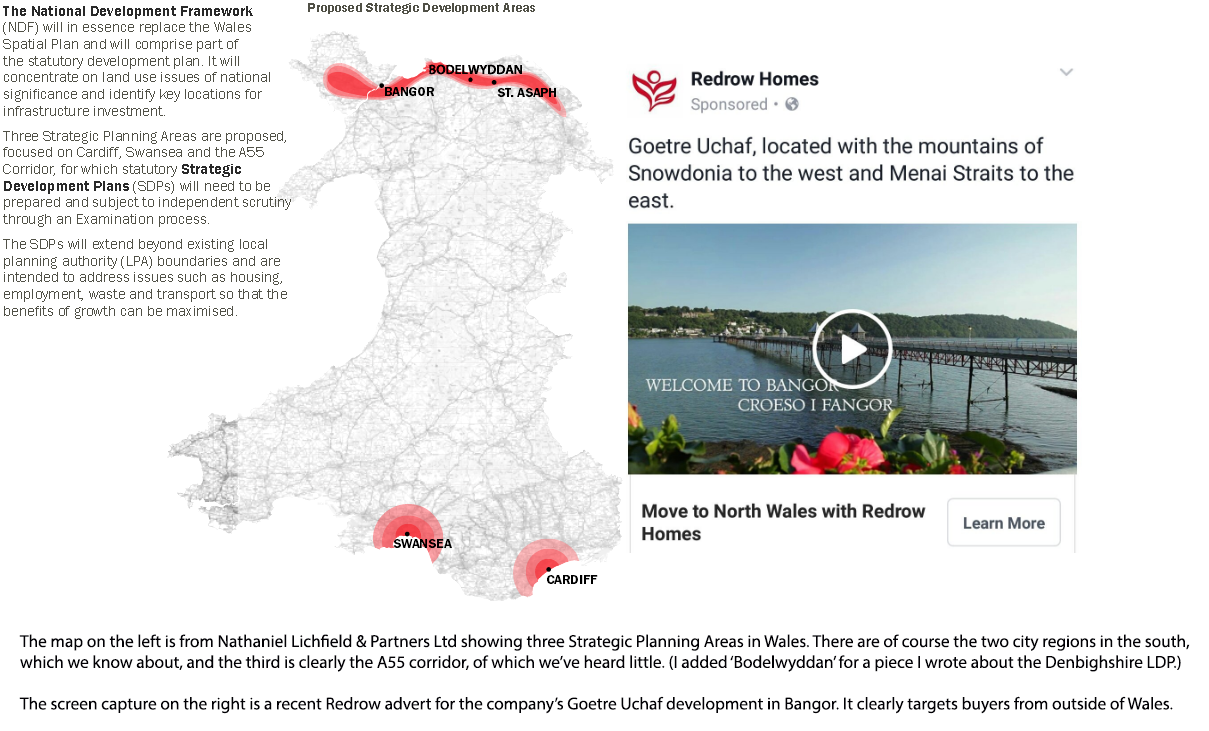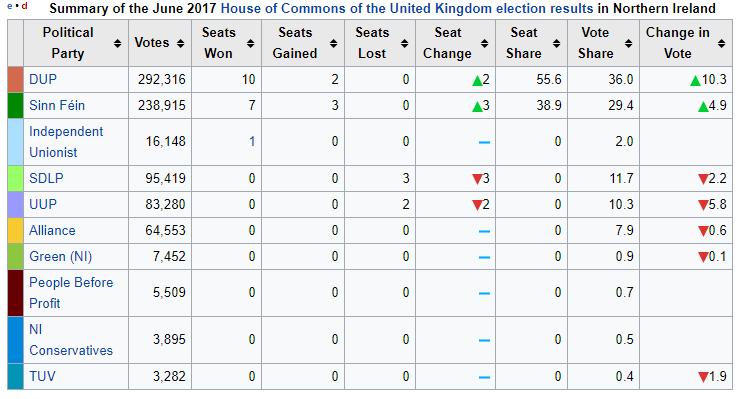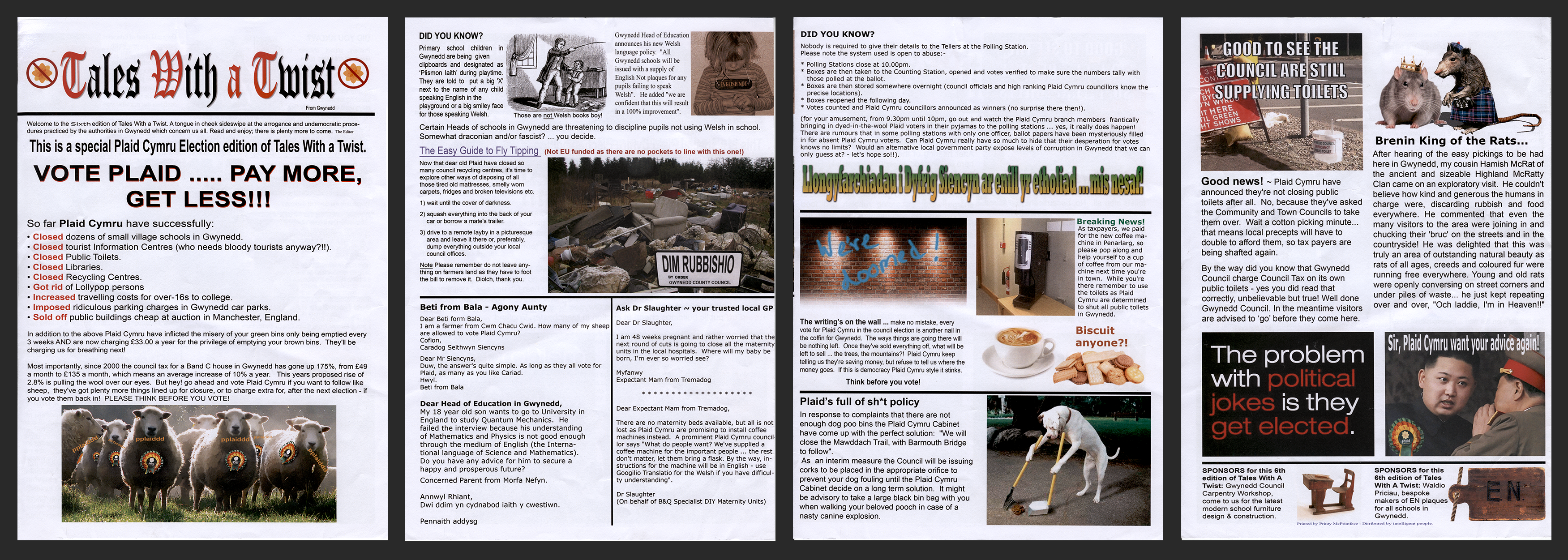A guest post by Aled Gwyn Jôb
‘Tri chynnig i Gymro’ (Three tries for a Welshman) is a very old and much-loved Welsh saying.
Where Leighton Andrews and Mark Drakeford ultimately feared to tread, the Welsh Government’s own inimitable attack dog, Alun Davies, is now all set to get his teeth into Local Government re-organisation.
But, if this to mean anything other than a tokenistic tinkering with the map of Wales once again, surely the process has to involve meaningful change this time round.
It’s an opportunity to look afresh at what local democracy should actually mean today, and how it can manifest itself anew in different parts of Wales. The long neglected link up between health care and social care should definitely be on the agenda, as well as democratic control of social housing, a sector which has grown exponentially over the past few years with little or no local scrutiny attached to it.
With Cardiff having a disproportionate slice of the political and economic cake, there is also a strong case for the creation of perhaps no more than 6 regional authorities to counter-balance the Cardiff-centricity of modern Wales, and those authorities imbued with real powers. Which could even perhaps include some element of tax-varying powers of their own, as is the case with local authorities in the thriving Basque Country.
It’s also high time for some radical thinking where the Welsh language and local government is concerned.
It presents a golden opportunity to implement the idea proposed by Adam Price, the Plaid Cymru AM – i.e. to create ARFOR, a single authority for the Welsh-speaking areas of Ynys Môn, Gwynedd, Ceredigion, and Caerfyrddin, which would operate through the medium of Welsh.
The much-maligned nationalist thinker, Saunders Lewis predicted that the Welsh language would decline faster with a Welsh Government in situ in Cardiff than it would under Westminster control, unless local government first conducted its work through the medium of Welsh in Y Fro Gymraeg.
With less than 5 per cent of deliberations at Y Senedd conducted in Welsh (well below the national 21 per cent of Welsh speakers), Saunders Lewis’ prophecy seems to have been borne out.
Every single party at Y Senedd (even UKIP) pledges strong support for Welsh in public: but the harsh truth after 20 years of devolution is that English has become the governing language in our national parliament. With the best will in the world, this is not going to change any time soon.
A cultural and political counterpoint is sorely needed to provide Cymraeg with real status and power- located in those areas where it remains an everyday living language.
Socio-linguists agree that a minority language requires some form of territorial integrity in order to thrive. Increasing use is now being made of environmental metaphors with a minority language imagined as a plant or flower which has to have a secure habitat in order to be able to breathe, grow and flourish.
If we continue with the environmental metaphor, most of us are all aware that Welsh’s natural habitat has been eroding on a frighteningly fast rate over the past two generations.

At the time of the 1961 census there were areas within sight of Stradey Park and Llandudno promenade where over 80% of the population spoke Welsh, and the whole of the west apart from south Pembrokeshire was mainly Welsh speaking.
By the 2011 census however, this former solid bank of Welsh speakers across these western counties had dried up alarmingly with Gwynedd down to 64% of Welsh speakers, Ynys Mon 59%, Ceredigion on 48% and Caerfyrddin down to 44%.
The calamitous retreat of Cymraeg in these heartlands since 1951, has been virtually ignored by all the political parties. Partly of course because of the thorny reality that this decline has been accelerated by an inflow of migration from England- with the vast majority of these incomers not showing any inclination to learn the language of their new country. Not one party, not even Plaid Cymru, has dared to challenge and oppose this hugely destructive process over the years.
But the decline has also been about an exodus of Welsh-speaking people, especially younger people in search of employment opportunities, not available in the traditional Welsh-speaking areas. Cardiff of course has been the main beneficiary of this exodus and although it’s comforting on one level that these people are at least staying in Wales, there can be no denying that this process has denuded their home communities of their vitality, their energy and their creativity.
The habitat needs to be rewilded, and the best way to start is with an idea
ARFOR could operate with say 60 elected councillors( 15 from the 4 areas). The geographic distances between Caergybi on Ynys Môn and Llanelli in Carmarthenshire need not be a problem in an age of fast-developing video conferencing. Its nominal headquarters could be based, say, in Aberystwyth or even Machynlleth, but with specific departments located in all four areas.
Arfor should be able to draw up a strategic trajectory for its territory in terms of economic development, housing, planning, social care and other key sectors such as food and drink, tourism, entrepreneurship and language regeneration.
The overall plans could then be implemented at a more local level by beefing up the role of present day community councils. These could be re-imagined by reviving the old model of the rural/town district councils (with several local community councils coming together to form these new entities) employing staff to discharge the duties delivered downwards by the central Arfor authority.
This would allow both a regional identity and a local identity to co-exist and co-create a better future for the heartlands which have only known decline, despair and disillusionment for the past two generations.
Cyngor Sir Gwynedd has already pioneered the way, having operated successfully through the medium of Welsh since the mid 90ies. Ynys Môn has declared that they are now going to follow its example. Arfor is half way there already.
As to the predictable concerns that Arfor would “divide” Wales, and re-ignite the old arguments aired in the 1970ies about such an idea, I would argue that the Welsh national identity is much more secure today than back then. That identity is secure enough to be able to live with the thought that different parts of Wales should perhaps be able to do things differently.
And there is no need to fret either that such a development would allow the other 5/6 regional authorities to ignore Welsh, because the Welsh Language Standards passed by Y Senedd recently will ensure that a modicum of bilingualism will remain in the others.
Associate membership of Arfor could also be provided over time to other Welsh-speaking areas, e.g Dyffryn Conwy, Parts of Denbighsire, Powys and Pembrokeshire, who wish to be part of the new entity.
Arfor has the potential to do more to develop the Welsh language than almost any other language success gained over the years, even arguably S4C – now a pale shadow of its former self and shorn of the clout it used to have in Welsh-speaking Wales.
It will give Welsh real political and economic clout in its traditional heartlands. It will provide employment opportunties and career structures for Welsh speakers from all over Wales. It will, at a stroke, make learning Welsh a real, economic and social necessity for incomers to these areas. It is quite literally, the golden bullet as far as language regeneration is concerned in Y Fro Gymraeg.
Cultural regeneration in the heartlands will undoubtedly lead to economic regeneration as well. It can be a magnet for Welsh speakers from all over the UK and wider afield. It can prove an inspiration to Welsh learners all over Wales and beyond to see that Welsh can thrive as a living, community language.
As Alun Davies weighs up his options, and perhaps even his legacy as far as the Welsh language is concerned as an enthusiastic learner himself, he might be tempted to bring that famous Bill Clinton slogan to mind, and re-phrase it to say : “It’s the culture, stupid” in seeking to effect change.
♦ end ♦
Jac chips in . . .
As persuasive as Aled’s argument is, I’m not totally convinced. For two main reasons. First, I’m one of those who believes it would divide Wales. Second, I look to Ireland’s Gaeltacht and I see no great success to emulate.
My fears on dividing Wales can be explained with an anecdote. My wife’s eldest brother lives in Crickhowell. About 20 years ago, with the Meibion Glyndŵr campaign still fresh in the memory, we were visiting and I got talking to my brother-in-law’s eldest son.
He brought up the subject of the campaign and made a forceful point that youngsters of his age in that area were experiencing a similar problem from retirees, good-lifers, commuters and others pushing up local property values – but nobody seemed to care about them because they didn’t speak Welsh.
The realisation of Arfor could result in those sentiments I heard in Crickhowell being raised again. And not just by sincere and sympathetic people like my nephew, but by the growing army of anti-Welsh bigots getting bolder by the day.
Which is why if Arfor does became reality I would like to see legislation introduced to protect anglophone Welsh identities in other rural areas. Otherwise Arfor could alienate people from Rhuddlan to Rhossili.
Now let’s turn to the Gaeltacht, as I guarantee many will do! It seems to be widely acknowledged in Ireland that the whole concept has been a failure. Everybody seems to blame everybody else, but the fact remains that the Gaeltacht is largely symbolic and kept afloat by a state reluctant to admit its abject failure.
The maps below tell their own story. (Available here in PDF format.)

Maybe a Gaeltacht made up of small, widely separated areas was doomed to fail, and this might be Arfor’s advantage over the Irish model.
But let’s assume that the Arfor project takes off, how is it to be sold to the large, non-Welsh populations in Beddgelert, Betws-y-Coed, Barmouth, Tywyn, Aberdyfi, Borth, New Quay – even Aberystwyth? Will these communities be able to opt out?
Whether these settlements buy in or not to survive Arfor will need positive discrimination in favour of the indigenous population coupled with restrictions on who can move in . . . which would send the English media and its Welsh lapdogs into a feeding frenzy!
As I say, I would prefer to see all-Wales legislation that could protect all areas facing similar problems. A strategy guaranteeing that locals get priority in housing, employment, education, training, grants, and everything else, with nothing forced on these areas unless it is of demonstrable benefit to the local population.
But if we can’t have a national strategy, then I would support Arfor, but my support could never be wholehearted.




















































